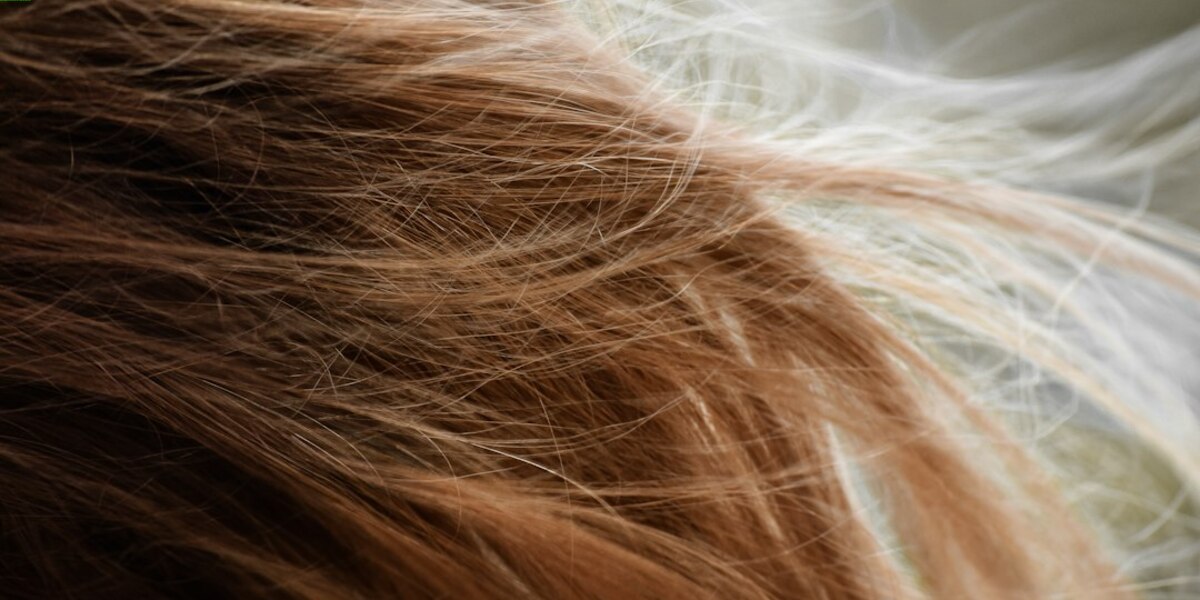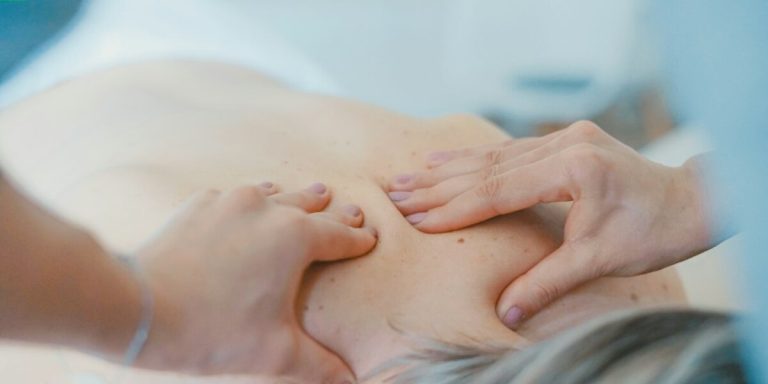Health Conditions That Cause Hair Loss: Unveiling the Hidden Facts
Hair loss can be a distressing experience, often bringing with it unwarranted stigma and self-esteem issues. Among the various reasons causing this undesirable phenomenon, certain health conditions stand out prominently. An exploration into these “health conditions that cause hair loss” unveils some hidden facts which are worth detailing.
This blog post is dedicated to demystifying the relationship between specific health problems and their impact on your hair’s vitality. Understanding these underlying causes of hair fall does not only lead towards finding effective solutions but also aids in promoting overall wellness for maintaining strong & healthy tresses.
Did you know?
Little known fact: Iron-deficiency anemia, a common condition often unnoticed in women, can actually lead to hair loss. When the body lacks sufficient iron, it prioritizes sending oxygen for vital functions over hair growth.
Understanding Hair Loss: Common Health Conditions At Play
Hair health is an essential aspect of our well-being often overlooked until we start noticing issues like hair loss. One might be surprised to know that there are numerous underlying health conditions which could lead to this disheartening problem. We tend not to connect the dots immediately and attribute it solely to ageing or improper hair care, when in fact, these instances may just be pointing towards a deeper issue lurking beneath.
Your body often expresses its distress through noticeable changes in your scalp’s condition and hair texture or volume, revealing the relationship between overall health and hair state at second glance. Systemic illnesses like thyroid disorders, autoimmune diseases such as alopecia areata, certain forms of lupus, and diabetes can cause unexpected hair loss—highlighting their impact beyond their target organs.
So next time you witness increased shedding while brushing or washing your locks consider pursuing medical advice before assuming it’s due only to excessive heat styling tools use or vitamin deficiency from unhealthy dietary habits—all common myths circling around unexpected tress thinning topic in 2023 discussions about Hair Health awareness raising efforts worldwide.
Identifying Autoimmune Disorders Related to Alopecia
Alopecia, a term commonly used to denote hair loss, can often be linked back to certain autoimmune disorders. Autoimmune conditions occur when the body’s immune system attacks healthy cells by mistake. In this scenario, it targets the hair follicles leading to different forms of alopecia.
Firstly, we have Alopecia Areata which stands as one of the most prevalent health conditions that cause hair loss. It predominantly causes round patches of baldness but could potentially result in complete scalp or even full-body hair loss if not managed early enough.
Second on our list is Lupus; another widely recognized culprit behind substantial hair thinning and breakages. This disease tends to affect more than just your skin and joints; for some people, it results in unpredictable cycles of shedding and regrowth which leaves their scalp under constant stress.
Hashimoto’s Disease cannot be left out either while discussing autoimmune disorders related to alopecia. Often overlooked due its subtlety during initial stages; over time however individuals with this condition may start noticing progressive yet irregular patterns of losing strands all across their head.
Lastly but certainly not least – Dermatomyositis poses itself as an equally serious concern amongst these health ailments triggering balding symptoms prematurely among sufferers albeit being less common compared others mentioned above.
Recognizing Thyroid Malfunctions and Their Impact on Hair
Thyroid malfunctions form a core part of the health conditions that cause hair loss. These crucial glands located in your neck are responsible for regulating numerous body functions, including hair growth. So when they’re out of balance, it can have quite an impact on your locks.
Hypothyroidism is one such common condition where your thyroid gland doesn’t produce enough hormones. This deficiency often leads to thinning or even complete loss of hair as inadequate levels negatively disrupt the cycle of hair growth and shedding.
Graves’ disease, another type related to hyperthyroidism (an overactive thyroid), also has notable effects on our tresses due to excessive hormone production causing accelerated heartbeat, anxiety symptoms and dramatic weight changes alongside rapid progressive baldness.
But how do you recognize these issues? When suffering from hypothyroid-related complications like chronic fatigue along with sudden pronounced fall-out strands – don’t ignore them! Instead seek medical attention promptly because besides affecting merely aesthetic appeal; continuous neglect could lead towards severe repercussions both physically & emotionally too!
Likewise if suddenly noticing significant increase in unwanted areas while simultaneously experiencing insomnia/brittle nails/rapid heart rhythms might well indicate grave problem – hence necessary check up immediately couldn’t be emphasized enough here either!
The Nutritional Deficit-Hair Loss Connection
It’s common knowledge that well-nourished, shining hair holds an undeniable correlation with a balanced diet. However, what many might not be aware of is the intriguing connection between nutritional deficit and hair loss, notably prevalent in recent years. In today’s fast-paced world where packaged food items rule our diets more than ever before, several health conditions have taken center stage causing significant hair loss.
A crucial aspect to understand here is how certain nutrients contribute to healthy growth and maintenance of your tresses. For instance, proteins aid in building keratin – your mane’s primary structural component – which means reduced protein intake can lead to weakened strands or extensive shedding over time eventually resulting in noticeable thinning.
Similarly, deficiencies related predominantly to iron and Vitamin D are often linked directly with increased episodes of balding patterns across both genders. While iron pushes oxygen from lungs throughout the body aiding efficient functioning including steady growth cycles for follicles; Vitamin D plays its part by stimulating fresh cells and consequently new follicle formation enhancing overall density on your scalp.
To conclude this section succinctly: Pay attention not only about what goes onto but also inside you-it makes all difference when dealing diligently against these twin issues concerning physical aesthetics as well personal hygiene standards alike!
The Role of Vitamin and Mineral Imbalances in Hair Shedding
Vitamin and mineral imbalances can play a significant role in hair shedding, thereby contributing to health conditions that cause hair loss.
Let’s shine the spotlight on Vitamins A, B-complex (especially Biotin), D3 and E. Vitamin A regulates sebum production, ensuring your scalp remains moisturized – just what your locks need for healthy growth! Meanwhile, the amino acids from proteins you ingest contribute towards producing keratin – a major component of our strands’ structure.
Next up is B-complex vitamins; these help create red blood cells responsible for carrying oxygen plus nutrients to the scalp and follicles. Lack of vitamin-B may lead to brittle or slow-growing tresses. Amongst them all, lacklustre amounts of biotin are often linked with extensive thinning!
Another culprit could be low levels of Vitamin D3 which aid in stress management since stress is widely recognized as a trigger for temporary hair fall issues such as Telogen Effluvium. Furthermore, it stimulates new and old cells alike within those glorious manes we desire so much!
Lastly but never least important comes along: Vitamin E’s antioxidant properties protect us from damage by free radicals hence maintaining tissue health including our precious crowning glory too!
Correlating Iron Deficiency Anemia with Accelerated Hair Thinning
Iron deficiency anemia is a common nutritional deficit that has been identified as one of the health conditions that cause hair loss. Prolonged iron deficiency can lead to anemia, characterized by reduced red blood cell production in your body. This could eventually result in accelerated thinning of your hair.
Hair follicles require ample nutrients for growth and renewal. Iron plays a vital role as it aids the transport of oxygen and other essential nutrients to these cells through circulation within our bodies.
When there’s insufficient iron, this process gets disrupted, impacting nutrient transportation at cellular levels across the body—including those nourishing your scalp and hair strands.
Recent research conducted in 2023 reveals staggeringly high percentages relating low serum ferritin levels (the stored form of iron) with patterned baldness both among men and women groups studied worldwide. Additionally, individuals who were found grappling with sudden yet significant instances of hair fall demonstrated predominantly lower than ideal ferritin readings compared to others portraying healthy manes!
This undeniable connection between iron shortage at systemic levels – including its negative impact on overall ‘hair health’ – calls for immediate attention! Whether you are noticing visible sparsity or just want prevention measures against possible future attrition; evaluating dietary habits should be integral if you’re seeking long term solutions towards maintaining lush tresses!
Hormonal Imbalances and Genetic Factors Affecting Hair Health
Hormonal imbalances and genetic factors play a significant role in determining hair health, with several conditions linked to hair loss. Hormones regulate multiple body functions, including the growth cycle of your tresses. When these hormones are out of balance, it can lead to thinning or shedding, impacting overall hair health.
In women especially hormonal imbalances such as Polycystic Ovary Syndrome (PCOS) often result in excessive hair fall. Elevated levels of male hormones known as Androgens make the follicles shrink, thereby reducing life span resulting in premature balding or patterned baldness.
Genetics on the other hand leave an indelible mark on our biology – influencing everything from eye color to disease susceptibility – but also dictate our predisposition towards certain kinds of alopecia- hereditary condition causing dramatic shifts in healthy head covering over time.
Exploring Androgenetic Alopecia: Patterns across Genders
Androgenetic Alopecia is one of the prevalent health conditions that cause hair loss. It affects both men and women, although its manifestation differs across genders due to hormonal imbalances and genetic factors.
For males with this condition, a distinct pattern usually emerges early on. This starts from thinning at the crown followed by an expanding bald spot over time while the frontal line retains some hair growth. Females may also experience significant thinning but unlike their male counterparts; they rarely encounter full-scale baldness.
Hormonal fluctuations significantly influence these patterns as Dihydrotestosterone (DHT), converted testosterone, tends to bind with receptors in your scalp’s follicles causing them to shrink or become dormant – initiating irreversible damage if not addressed promptly. On top of that, people genetically predisposed are more susceptible facing higher risks irrespective of their gender.
Several treatment strategies can help manage Androgenetic Alopecia though it’s crucial for individuals experiencing symptoms like unusual hair shedding amounts or noticeable changes in part width among others should seek professional guidance sooner than later – ensuring appropriate measures are taken timely which could drastically prevent further progression and promote healthier sustainable outcomes overall.
In conclusion, understanding how such variations operate allows us better counteractive approaches towards maintaining healthy tresses alongside recognizing any concerning signs promptly enough saving potentially detrimental circumstances down the line eventually preserving our crowns longer happily!
Dissecting the Relationship Between Stress Hormones and Hair Loss
Stress hormones, particularly cortisol, have a noticeable impact on hair health. This relationship is intricate and often overlooked but can provide key insights into health conditions that cause hair loss.
Cortisol is referred to as the ‘stress hormone’ because it surges during times of high stress or anxiety. It adequately helps us cope with challenging situations in short bursts; however, prolonged exposure due to chronic stress can lead to dire consequences for our bodies – one of those being adverse effects on our scalp and tresses.
When unduly stressed over an extended period, your body goes into survival mode. Resources are directed towards vital functions like staying awake and alert rather than maintaining healthy growth cycles – including that of your hair. In essence: under severe pressure or threat (even if perceived), your body prioritizes immediate needs above long-term benefits such as sustaining vibrant locks.
Furthermore, excessive levels of cortisol also contribute to various health conditions like thyroid imbalances and polycystic ovary syndrome (PCOS). Both these disorders are notorious culprits behind hair thinning in women specifically.
It’s not all doom though- understanding this complex connection between stress hormones & hair loss aids in devising effective strategies for mitigating damage while enhancing overall well-being! Incorporating holistic lifestyle changes may help manage stress levels better-leading ultimately towards healthier strands!
Conclusion
In wrapping up, it’s vital to remember that various health conditions can indeed lead to hair loss. From stress-related disorders, hormonal imbalances to autoimmune diseases – our locks serve as a mirror reflecting the state of our inner health. So next time you come across strands on your pillow or in the shower drain more frequently than usual, don’t brush it off immediately as mere shedding; consider seeking professional medical advice.
Now that we’ve unmasked some key facts about “health conditions that cause hair loss”, let this be an eye-opener about how interconnected our overall wellbeing is with our crowning glory. For further information and resources dedicated entirely towards nurturing healthier and happier tresses, feel free to browse around on our website for insights into ‘Hair Health’. Stay informed because knowledge after all is the first step towards action!







